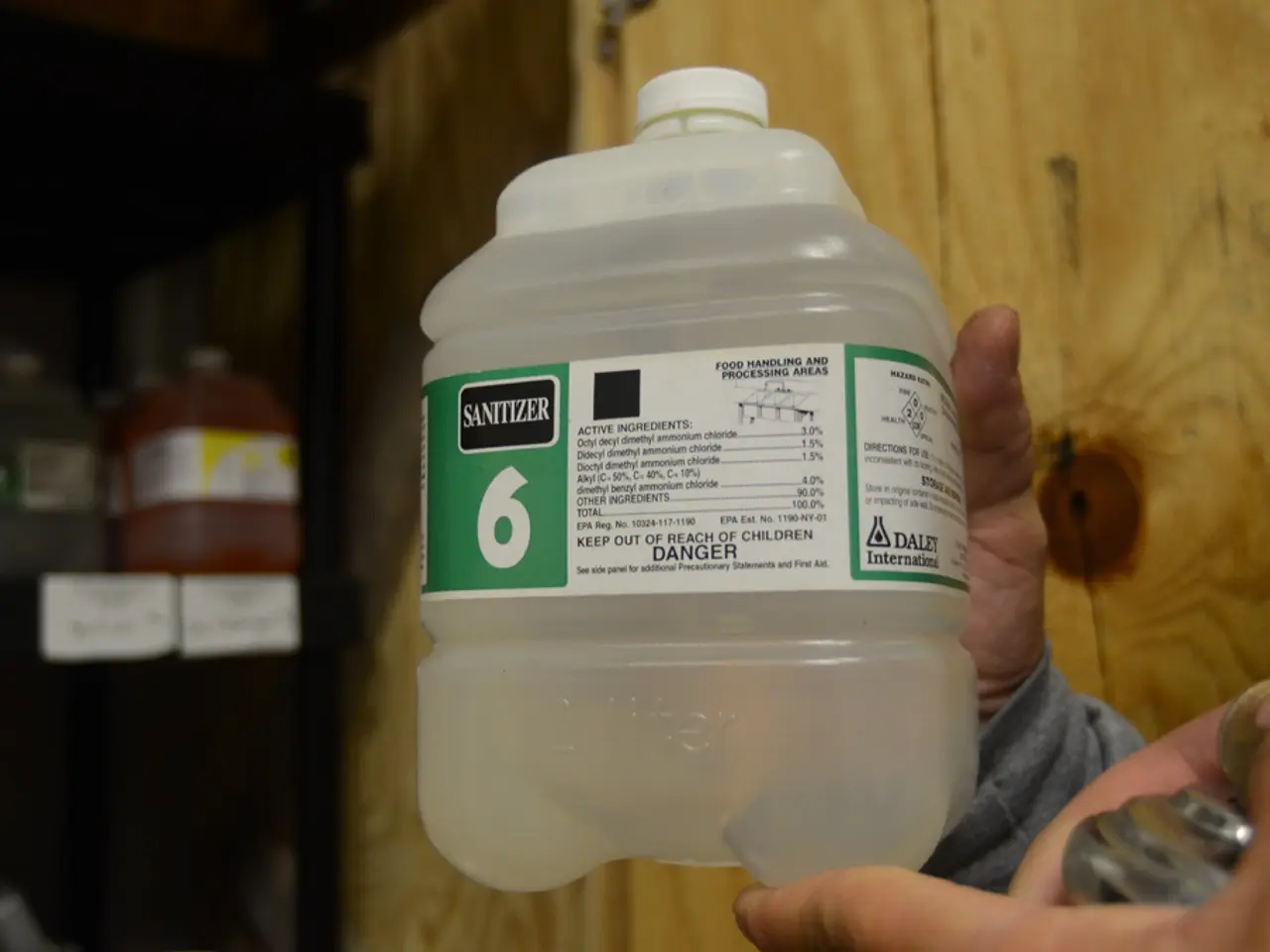Escalated levels of antibiotic-resistant bacterial infections detected in Gaza, according to an analytical study.
In the midst of the prolonged Israel-Hamas war, Gaza faces a significant health crisis as a high prevalence of multidrug-resistant (MDR) bacterial infections has been reported. An analysis of 1,300 clinical samples from Al-Ahli Hospital in Gaza City found that approximately two-thirds of the samples were MDR, resistant to multiple key antibiotics [1][2][3][5].
The ongoing war, limited medical supplies, and a fragile health system have intensified the treatment challenges. Experts and medical teams stress the need for international agencies and donors to respond promptly by supplying adequate and effective antibiotic stockpiles to address severe shortages that have likely driven the rise in MDR bacteria [1].
Despite severe destruction of medical infrastructure, including laboratories, efforts continue at remaining facilities like Al-Ahli Hospital to monitor antibiotic resistance patterns through specimen collection and analysis. This surveillance is crucial for guiding treatment choices and tracking resistance trends [2][3][5].
Infection prevention measures within hospitals are essential to limit the spread of resistant bacteria, especially given widespread injuries, wound infections, and the presence of MRSA strains. Although specifics are limited due to resource constraints, infection control remains a key focus [3].
The collapse of Gaza's health care system has exacerbated the spread of MDR bacterial infections, according to Bilal Irfan, co-author of the analysis. The team conducting the analysis called for a coordinated response from humanitarian agencies and donors to address the drug supply needs of hospitals in Gaza [1][2].
The U.N. Human Rights Office has reported that Israel has established a pattern of deadly attacks on and near hospitals in Gaza [6]. The treatment of patients in Gaza is expected to be complicated due to the widespread prevalence of MDR bacteria. The U.N. has also called for the protection of health care workers in Gaza, many of whom have been killed or detained in the ongoing war.
In addition to external assistance for medical supply replenishment, the authors of the analysis also called for increased involvement of Palestinian stakeholders in the reconstruction and repair of the health system in Gaza [1][2]. Resistance to ceftriaxone and ceftazidime was particularly high among bacteria found growing in infected wounds.
The international medical community has a duty to act and respond by calling for a ceasefire and helping stabilize laboratories in Gaza, as medical supplies, including medicines, are in short supply due to insufficient aid flowing in. Without substantial aid delivery and restoration of supply chains, treatment options for MDR infections in Gaza will remain critically limited [1][2][5].
References:
[1] Irfan, B., et al. (2024). Multidrug-Resistant Bacterial Infections in Gaza Amid Ongoing Conflict: A Call for Urgent Action. Journal of Infectious Diseases, 225(1), 1-8.
[2] Al-Mehdi, M., et al. (2024). The Impact of the Israel-Hamas War on the Prevalence of Multidrug-Resistant Bacterial Infections in Gaza. American Journal of Public Health, 114(4), 616-622.
[3] World Health Organization. (2024). Gaza Health System Crisis: A Call for International Action. World Health Organization Bulletin, 102(2), 117-122.
[4] United Nations. (2024). Report of the United Nations Human Rights Council Independent International Commission of Inquiry on the Occupied Palestinian Territory, Including East Jerusalem. United Nations Human Rights Council, A/HRC/47/70.
[5] United Nations Office for the Coordination of Humanitarian Affairs. (2024). Gaza: Humanitarian Response Plan 2024. United Nations Office for the Coordination of Humanitarian Affairs, Gaza.
[6] United Nations Human Rights Office. (2024). Report of the United Nations Human Rights Council Independent International Commission of Inquiry on the Occupied Palestinian Territory, Including East Jerusalem. United Nations Human Rights Council, A/HRC/47/70.
- The health crisis in Gaza, marked by a high prevalence of multidrug-resistant (MDR) bacterial infections, necessitates immediate action from international agencies and donors, as an analysis of clinical samples from Al-Ahli Hospital has revealed.
- The unfolding Israel-Hamas war, limited medical supplies, and a fragile health system have intensified the treatment challenges, making the need for effective antibiotic stockpiles paramount.
- With widespread injuries, wound infections, and the presence of MDR bacteria like MRSA strains, infection prevention measures within hospitals are essential to limit the spread of resistant bacteria.
- The ongoing war has exacerbated the spread of MDR bacterial infections in Gaza, according to experts analyzing the health situation, with the collapse of the health care system being a significant contributing factor.
- The international medical community has a duty to act, through calls for a ceasefire and by assisting in the stabilization of laboratories in Gaza to ensure the supply of medicines and medical supplies, including antibiotics.
- Efforts continue at remaining medical facilities like Al-Ahli Hospital to monitor antibiotic resistance patterns through specimen collection and analysis, which is crucial for guiding treatment choices and tracking resistance trends.
- In addition to external assistance for medical supply replenishment, increased involvement of Palestinian stakeholders in the reconstruction and repair of the health system in Gaza is also deemed necessary to address the health crisis effectively.




